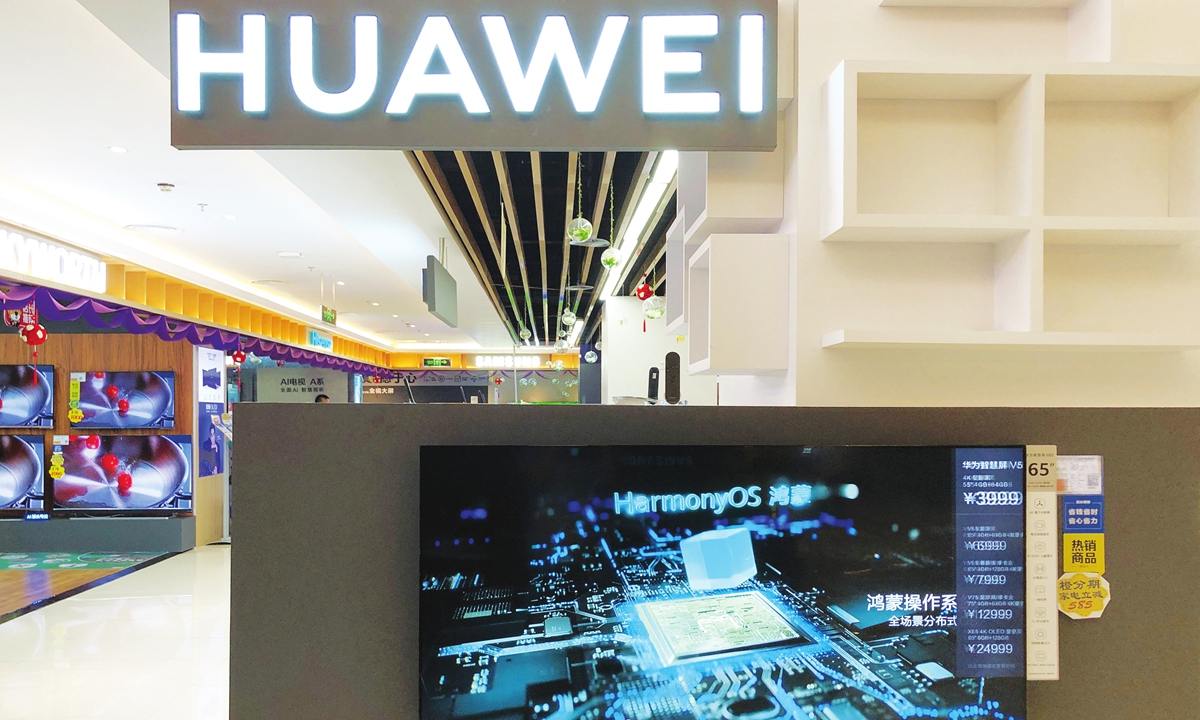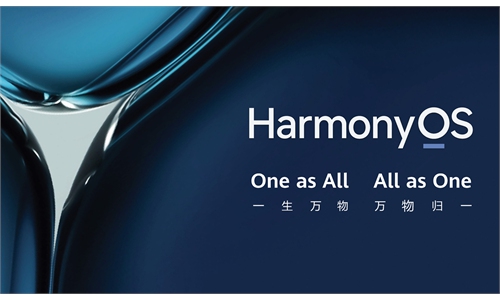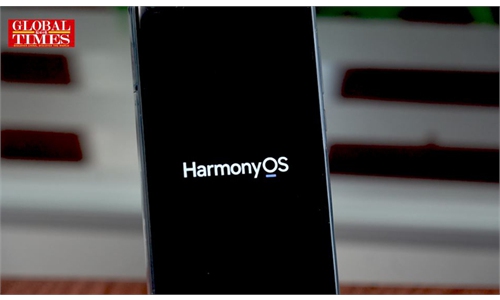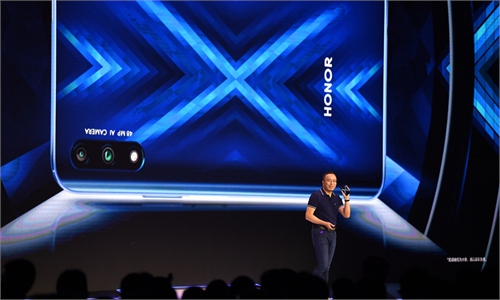
A demo video of the HarmonyOS is shown on Huawei's smart screen at a chain shop of electronics retailer Suning.com on Chaoyang Road, Beijing on July 17. Photo: VCG
Chinese telecommunications firm Huawei told the Global Times on Sunday that Google's switch to the AAB format, also known as Android App Bundles, will neither affect the experience of HarmonyOS users nor slow the development of the OS as some media reports have speculated.
Following Google's plan to ditch the previous APK format and require new apps to be published with the AAB format starting in August, some media reports speculated that the move could lead to the non-functioning of some apps in Huawei's self-developed HarmonyOS, which is now compatible with Android and can run APK format apps.
"The answer is no," Wang Chenglu, president of Huawei's consumer software business, told the Global Times on Sunday, noting that it will not affect the development of the HarmonyOS either.
"The AAB format is essentially similar to Harmony's Atomic Service," Wang explained.
Atomic Services are developed based on HarmonyOS APIs and can run on multiple devices so that users can conveniently use them in proper scenarios and on proper devices, according to Huawei.
According to Google's website, the AAB is Android's new official publishing format that offers "a more efficient way to build and release apps." It can help deliver a better experience in a smaller app size, which can improve the success of installations and reduce uninstalls. Google also says the app bundle requirement applies to new apps only.
Ma Jihua, a veteran industry analyst and a close follower of Huawei, told the Global Times on Sunday that Google's ditching of the previous APK format might aim to pave the way for its own operating system called FuchsiaOS, which was designed for the Internet of Things era.
"So far, Huawei's Harmony is still in its early stage, and cannot pose a threat to Google's Android," Ma added.
As of Thursday, more than 30 million devices were running the HarmonyOS, just a little more than a month after it was officially launched for smartphones. Wider use of the OS is crucial for Huawei, especially as its hardware business has been declining sharply due to the US crackdown.





